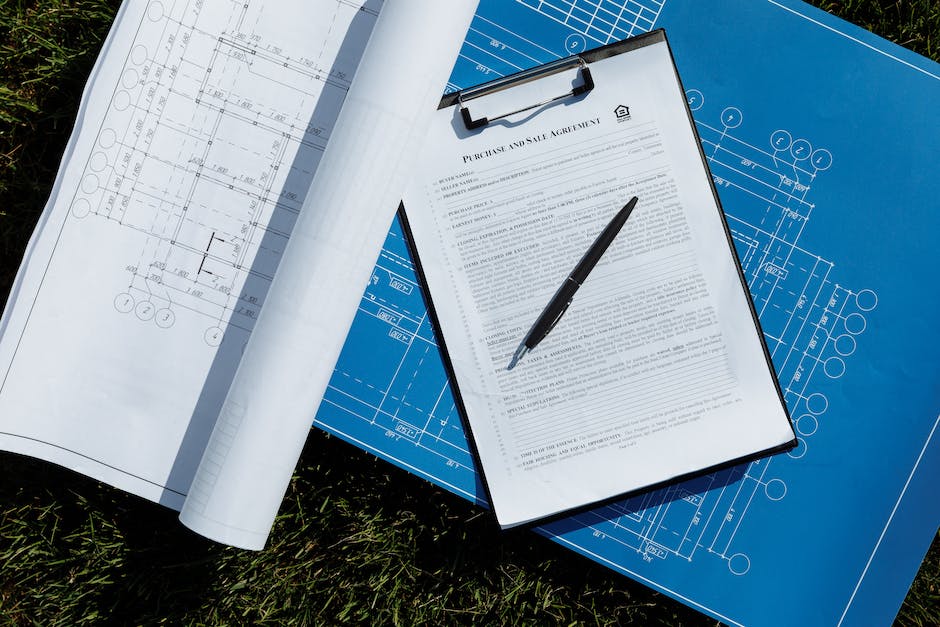Property management is an integral part of owning real estate properties, ensuring the smooth running of rental operations and maintaining the worthy condition of the properties. However, conflicts may arise, standards can drop, and the need to bring in a new property manager becomes a necessity. This article covers a wide spectrum of concerns for Maryland property owners, focusing on the reasons behind switching property managers, identifying prospective managers, the transitional process and, the legal considerations to keep in mind within this real estate context. Maryland property owners stand to greatly benefit from this valuable knowledge, helping navigate the often challenging property management arena with ease.
Understanding the Need to Switch Property Managers
Identifying the Need to Switch Property Managers
In the real estate industry, property owners often hire property managers to handle the day to day operations of their rental properties. This includes tenant placement, property maintenance, rent collection, and lease enforcement. When executed efficiently, property management can prove to be a vital asset for property owners. However, when issues relating to poor communication, lack of proper maintenance, unresponsiveness to tenant issues, and difficulties in rent collection arise, the competence of the property manager may be brought into question. This may necessitate the need for property owners in Maryland to consider switching their property managers.
Interruption in Communication
One of the most vital attributes of an efficient property manager is clear and prompt communication. Property owners need to be kept up-to-date on the status of their property, be it vacancies, repairs or rent collection. Poor communication from a property manager can lead to misunderstandings, dissatisfaction, and potential financial losses. If a property manager in Maryland fails to communicate effectively, the property owner might consider looking for a different manager who prioritizes clear and regular communication.
Lack of Proper Maintenance
Property managers are entrusted with the task of preserving and enhancing the value of a property. This involves addressing maintenance issues in due time and ensuring a high standard of cleanliness and functionality. A property manager’s negligence towards maintenance could lead to the devaluation of the property and dissatisfaction among tenants. If such situations persist, the property owner may regard this as a legitimate reason to switch their property manager in Maryland.
Unresponsiveness to Tenant Issues
An essential role of property managers involves addressing tenant concerns and complaints. When these issues are neglected or handled poorly, tenants can become frustrated and may decide to move out, leading to reduced income for the property owner. A persistent pattern of unresponsiveness to tenant issues is a concerning sign that a property owner might have to replace their property manager.
Difficulties in Rent Collection
Collecting rent timely is not only necessary for the property’s cash flow but it also enforces the rules and regulations pertaining to the rental agreement. If a property manager fails to perform their duty effectively in this respect, it can negatively impact the revenue from the property. A property manager in Maryland who is routinely lax on rent collection calls into question their efficiency, potentially necessitating a change.
Moving on from your Current Property Manager in Maryland
In the state of Maryland, the law is clear that accommodates property owners by allowing them to terminate their relationship with their current property manager if they feel they’re not acting in their best interests. However, certain procedures, such as serving a formal notice to the concerned party as per the terms agreed upon in the property management agreement, must be adhered to.
If you’re contemplating a change in property management, it would be prudent to prevent a hiatus in management by jumpstarting the process of finding a replacement. This involves interviewing prospective candidates, cross-checking their references, and having a legal expert scrutinize the contract before green-lighting the new collaboration. This ensures that the incoming property manager is a noticeable step up from the outgoing one, thus securing your investment over time.

Photo by krakenimages on Unsplash
Identifying Prospective Property Managers
Scouting for a New Property Manager in Maryland
Initiating a thorough search for a new property manager is a crucial step when you decide to part ways with your current one. The best place to start is the internet, most property management firms have established a digital presence and their websites are a wealth of information about their offerings, methodology, and fee structure. Plus, you can check out their active property portfolio.
Don’t forget to spend some time on the reviews section. The experiences of previous clients can reveal a lot about a manager’s efficiency, professionalism, and approachability, especially in a crisis situation.
Finally, the age-old method of personal referrals can also be extremely helpful. Engage with other property owners in Maryland. Their firsthand journey with their property managers could provide you with invaluable insights.
Understanding Maryland’s Real Estate Law
It’s crucial for a property manager to have a solid understanding of Maryland’s real estate laws. They should be aware of the state’s landlord-tenant law, fair housing law, and property code. These laws continually evolve, and staying updated is essential to avoid legal issues. During your conversations or interviews with potential managers, assess their knowledge based on these criteria.
Choosing a New Property Manager
When choosing a new property manager, there are several important factors to consider. Firstly, the service fees they charge. This could include a monthly management fee, lease renewal fee, or setup fee. Before selecting a property manager, make sure you fully understand their fee structure to avoid any surprises later.
Next, consider their level of experience. Experienced property managers bring more insights and can better handle real estate challenges. Ask for the number of years they have been in the industry and the types of properties they have managed.
Lastly, ask about their strategies for attracting and retaining tenants. Maintaining occupancy rates is crucial for profitability, so the property manager you select should have effective marketing and tenant retention strategies. This might include advertising vacant properties, screening potential tenants, and implementing effective methods for collecting rent.
Wrapping Up
Moving on from your current property manager must not be an impulsive decision, especially without comprehensive research about prospective managers. Ensure you have settled on a manager who is well-versed with Maryland’s real estate regulations and offers competitive service charges. Their professionally accumulated experience should be substantial and their tenant strategies must focus on not just attracting but also retaining tenants successfully.

The Transition Process to a New Property Manager
Understanding Your Present Agreement
Your first step in the direction of changing property managers should be to gain thorough understanding of the contract you currently have in position. Reading the terms and conditions of your agreement carefully is vital as it outlines the necessary protocol for terminating the contract before it’s due. Maryland property management contracts often embed a clause demanding a pre-information notice period of generally around 30-60 days before termination. It’s crucial to comply with these conditions to steer clear of feasible legalities.
Communicating With Your Current Property Manager
Once you are confident about the termination procedure, the next step is to communicate your intentions to the property manager. Draft a formal letter expressing your desire to switch managers. The correspondence should be clear on the reasons for the decision, stating them objectively without tarnishing the relationship. Keep in mind that a professional approach is essential to maintain your reputation in the real estate industry.
Selecting A New Property Manager
While your current property manager is winding up, you should be actively looking for a replacement. Your new property manager should offer better services, and more aligned with your property goals. Consult widely within Maryland, checking reviews and recommendations to narrow down your list. Arrange interviews and ask potential candidates about their services, fees, and experiences with properties similar to yours.
Transitioning to the New Property Manager
Once you find a suitable replacement, the next step is transitioning. Compile all the relevant property documents including lease agreements, tenant contacts, financial details, maintenance records, and any other necessary records. Hand them over to your new property manager and take them through, explaining every detail. Be prepared to answer any questions the new manager may have.
Introducing The New Property Manager to Tenants
In Maryland, tenants have the right to know who is managing their housing. Therefore, once you settle on a new manager, schedule a meeting where you can introduce them to the tenants. The meeting would provide an opportunity for tenants to ask questions and understand how the new management will handle their needs.
Ensuring Smooth Changeover
Change is not always easy and switching property managers can come with its hitches. To ensure a smooth changeover, keep open lines of communication with all relevant parties. Inform them of every decision made during the process and reassure tenants that the change is for the better. Lastly, work closely with your new Maryland property manager to establish a property management strategy that suits your objectives.
Transitioning to Your New Property Manager
Once you have successfully transitioned to a new property manager, the next step will involve adapting to the new managerial style and laying a foundation for a successful and amicable working relationship. Scheduling regular meetings to discuss and review the performance of the said property, talk through any concerns, and strategize for future growth is vital. With ongoing dialogue and teamwork, your property in Maryland will be in capable hands leading to a beneficial relationship for yourself, the property manager, and your tenants.

Legalities Associated with Switching Property Managers
Navigating Legal Aspects in Maryland
In Maryland, if you’re a property owner contemplating a change in property management, it’s imperative that you grasp the legal implications that come with the process. Maryland, like many other states, has a specific set of laws and regulations that govern property management. These laws not only dictate the duties and responsibilities of property managers but also lay down the framework for how to change or end a property management agreement.
Cancellation of Agreement Clauses
One critical aspect when switching property managers is understanding the cancellation language in your current property management agreement. This clause will explain under what circumstances you can end the agreement and any penalties or costs associated with early termination. Typical reasons that allow for cancellation include the property manager’s breach of contract, inefficient management, or neglectful maintenance of the property.
Some agreements may also include an ‘at will’ termination clause, allowing either party to end the agreement at any time, usually with appropriate advance notice. However, if no such clause exists in your agreement, and no valid reason for cancellation exists, prematurely ending the contract could entail legal and financial ramifications.
Updating Lease Agreements
After selecting a new property manager, ensure that all lease agreements with your tenants are updated accordingly. This update is crucial to establish the authority of the new manager legally and clarify expectations and responsibilities. The new property manager should thoroughly understand pertinent Maryland state laws regarding leases, security deposits, property inspections, repair requests, and eviction procedures.
Notification of change in management to the tenants is another essential step. Maryland law requires landlords to inform tenants in writing of any changes to the owner or property management, including the name, address, and phone number of the new property manager.
Ensuring Compliance with Maryland State Laws
During the entire process of switching property managers, you must comply with Maryland state laws. Depending on your property and its location, you might also need to adhere to county and city laws. This involves being mindful of Maryland’s property management licensing laws, fair housing laws, and the Maryland Security Deposit Act.
The new property manager must have a Maryland Real Estate Broker’s license as per state law if they will be performing tasks such as leasing properties, collecting rent, or handling tenant complaints.
Moreover, being knowledgeable and adherent to fair housing laws is also necessary to prevent discrimination lawsuits. For instance, you cannot discriminate against potential tenants based on their race, color, religion, sex, familial status, national origin, marital status, physical or mental disability, and sexual orientation.
The change in property manager does not affect the security deposits provided by tenants. These deposits are still subject to Maryland Security Deposit Act and must make due transfers from the previous manager to the new one.
Navigating the Process of Changing Property Managers
Navigating the process of changing property managers can be challenging without proper guidance and understanding. Consulting with a real estate attorney can help ensure you are following all legal requirements and best practices, providing a smooth transition for you, your new property manager, and your tenants.

Ultimately, making the switch to a new property manager is a decision that requires a considerable amount of thought, research, and preparations. It’s a significant move that deals not only with the immediate concern of improving property management but also impacts the future prosperity of your investment. Ensuring that Maryland real estate and property management laws are met, and accommodating tenants during this process, are essential steps that property owners should not overlook. With the right guidance and due diligence, this transition can become a seamless process that paves the way for a better and brighter future for your Maryland properties.
